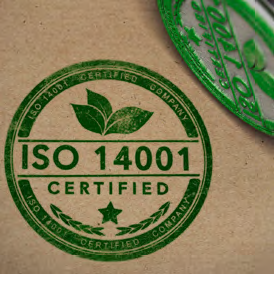The awareness of environmental problems is growing across the world and it is felt by many that current development patterns cannot be sustained in the long term. A large part of activities that is undertaken by organisations has some serious environmental impacts, not only in the form of pollution, but also in the way it utilizes natural resources, manages its business and produces waste. As a result, governments in many countries are gradually endorsing regulations designed at protecting the environment, and consumers on the other hand requiring suppliers to demonstrate compliance and good practice in environmental matters. To address global environmental problem, several tools has been developed in the last two decades. Among these tools for environmental management is the ISO 14001 on environmental management systems (EMS) which emerged as the befitting response to the global sustainability problems.
In 1992 the United Nations Conference on Environment and Development (UNCED), also known as the ‘Earth Summit, triggered the World Business Council for Sustainable Development to propose that the International Organization for Standardization (ISO), which had previously established standards for the quality of air, water, and soil, should develop international standards for environmental performance based on the concept of sustainable development. The following year International Organisation for Standardisation (ISO) created a new technical committee known as TC 207 to develop an international EMS standard, along with other standards on environmental management tools and techniques. In the year 1996, the ISO 14001 environmental management system specification was adopted and published.
An Environmental Management System (EMS) is part of an organization’s overall management system. It is a systematic approach dealing with the environmental aspects of an organization. EMS is a tool that
enables an organization of any size or type to control the impact of its activities, products or services on the natural environment. It provides a framework to help the organization identify those aspects of its business that have a significant impact on the environment, to set objectives and targets to minimize these impacts and to develop programmes to achieve targets and implement other operational control measures to ensure compliance with the stated environmental policy.
Nowadays organizations are increasingly called upon to demonstrate sound management of economic, social and environmental issues. Evidence suggests that a focus on this “triple bottom line” results in advantages in financing, insurance, marketing, regulatory treatment, and other areas. A certification to ISO 14001 improves environmental management and enables equal access to a growing “green” market place. ISO 14001 has proven to be a useful tool to evolve from maintaining regulatory compliance to a position of improved productivity and enhanced competitive advantage. There is evidence that organizations which manage not only the standard economic factors but also the environmental and social factors affecting their business show financial performance superior to those which fail to manage all three.
With respect to business skills, the adoption of ISO 14001 can award preferential access to foreign markets. In actual fact, although the costs of adopting ISO 14001 can be high, the pressure exerted by the markets and the customers is one of the main reasons why firms consider the investment in ISO 14001 to be worthwhile. Numerous studies have shown that countries, which export products, had higher levels of ISO 14001 certifications. Countries like China are good examples that started adopting ISO 14001 Standards to enter in the international market and to satisfy customers’ requirements.
The point of view of importers has also been studied and results have shown that many importers feel more assured engaging a new supplier awarded with ISO 14001 because it means the supplier administrates well its business and it is environmentally friendly. Organisations which aim to export to environmental conscious markets need ISO 14001 certification. This can also be seen in studies that dealt with the supply chain in international markets. For example, in developing countries, because of higher availability of natural resources, adoption of ISO 14001 and through close cross-country supply chain diffused them from west to east.
Moreover, the significance of ISO 14001 in international trade is pointed out for the possibility of recovering a country from the crisis by reinforcing trade, and the potential of ISO 14001 as a market opener. Greek firms have used ISO 14001 as a means to restore their reputation in foreign markets and to stimulate their competitiveness.
The adoption of EMS can create competitive advantage for companies through the promotion and development of distinctive skills in organizational, commercial, and related stakeholder management. Apart from that, improvements in operational efficiency of a firm can emerge given that ISO 14001 is based on the principle of continuous improvement. In addition, the Environmental Management System promotes internal assessments in the consumption of energy and resources, the application of cost analysis in the life cycle, and other similarly cutting-edge practices of environmental management that are directly related to the reduction in environmental impacts.



